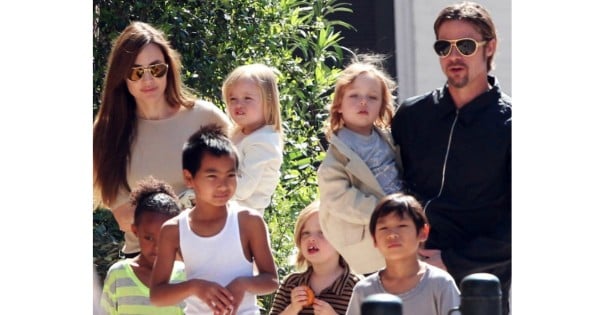
“Yes…someone really did introduce me as “Jill and her two adopted sons” at a birthday party”.
I really, really try not to get wrapped around semantics when people make thoughtless remarks about our adoptions or when they ask a question that maybe they shouldn’t ask…or ask it in a way that’s offensive.
I try to keep in mind that every person my family comes in contact with is not going to be familiar with adoption lingo and that sometimes, people will make unfortunate word choices that make me mad.
Such as:
“It’s so great that you adopted…we’re going to adopt one day, too, but we want one of our own first.”
“He’s really adorable…do you have any of your own?”
“I’d like to introduce you to Jill and her adopted sons.”
All of these things have been said more than once…usually by people who mean no harm whatsoever. Correcting them is awkward, no matter how much diplomacy I practice and no matter how carefully I choose my words.
Every time someone says something like this, I wrestle with whether or not it’s appropriate to say something or whether I should just smile, nod and let it go. Sometimes it’s easier just to hold my tongue and understand that someone only meant to compliment my family or show interest.
But, the kids you’re talking about? The ones standing right next to me, paying attention to the question? They are my own. Why shouldn’t I speak up and politely make the distinction?


Top Comments
I, too, have a biological and adopted child. Oh the comments I've heard! And usually within earshot of one or both kids. My personal favourites include 'Oh, I didn't realise she wasn't yours' and 'you know adoptions don't really work, right?' and 'It must be hard not favouring your 'own' child'.
Guess what? Being an adoptive parent has made me a better biological one. I am incredibly fortunate to have two beautiful kids.
Which one do I love more? Connect with better? Find easier to parent? It changes from day to day depending on circumstance, environment and who has driven me to distraction the least!
My sister gets this question a lot. The difference is she shares half her children'sDNA and she is a single mum. Maybe in an ideal world, people would just identify families by responsibility and emotional ties rather than by genetics which is too often about ethnicity.
That way my sister can turn up to playgrounds and parent teacher evenings and be accepted as "the mum" because she has turned up and is looking out for the kid's best interest.